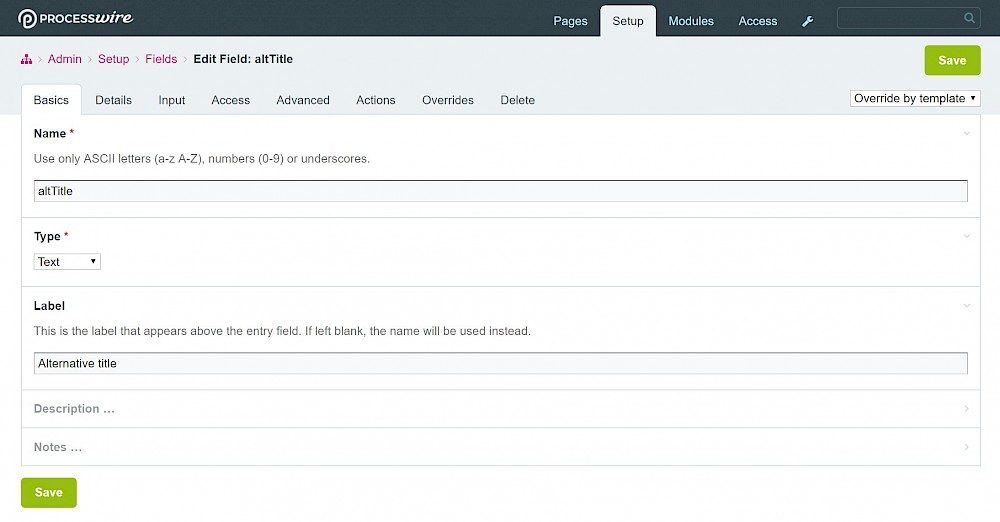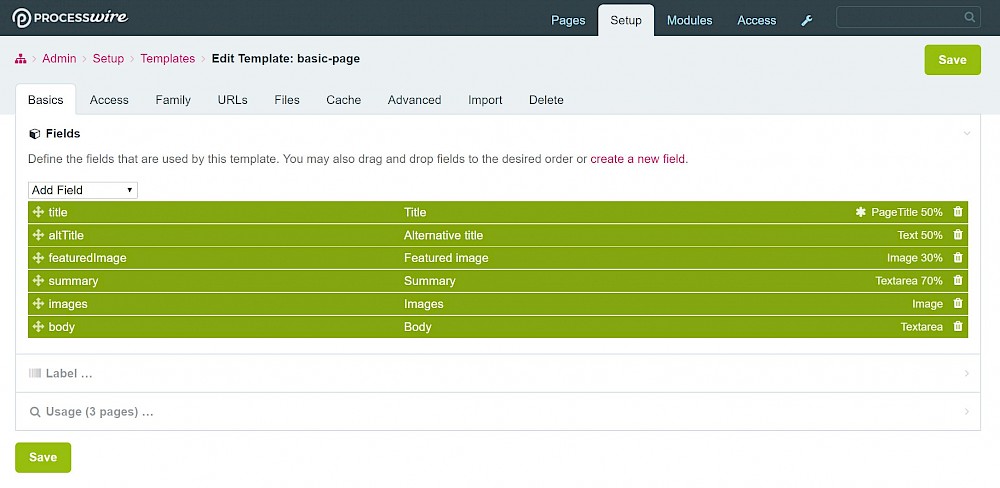With processwire, you have full control over the output, which mean you can use a single or combination of text fields for a page title. Let's dig in.
By default, every page has a 'title' text field. This is just the title of the page as shown in the admin, it doesn't mean you have to use this for you page title meta tag. In some cases it makes sense, but sometimes you want to separate the admin page title with the title that will actually be output on your web pages.
Create a text field called 'altTitle'. If you need a refresher, check out fields and how to create them.

Now you can add this to a template. If you're unsure, you can first read about adding fields to templates.

Once this is done, you can edit a page created with the 'basic-page' template.

If you''re wondering how I got these fields lined up next to each other, you can read the creating grids of fields post where this technique is outlined. Enter some data into these fields and save your page. Now we can output one of them, both of them, or some other combination as your page titles.
For demonstration and for clarity, I'll show the entire head section here.
<?php namespace ProcessWire; ?>
<!DOCTYPE html>
<html lang="en">
<head>
<title>
<?php
// OPTION 1: If you want just the 'title' field
echo $page->title;
?>
<?php
// OPTION 2: Just the 'altTitle' field:
echo $page->altTitle;
?>
<?php
// OPTION 3: The 'altTitle' field OR the 'title' (i.e. if the 'altTitle' is empty
// or not present on the template, then will just print value of 'title')
echo $page->get("altTitle|title");
?>
<?php
// OPTION 4: The 'title' field with the 'altTitle' appended to it (if 'altTitle'
// exists on template)
echo ($page->altTitle) ? $page->title . " - " . $page->altTitle : $page->title;
?>
<?php
// OPTION 5: Some static text, with the altTitle appended after
echo "My site name" . " - " . $page->altTitle;
?>
</title>
</head>Remember that you will only use one of the options above. This technique can also be used for other tags, like the descripion meta tag. For this site, I use:
<!-- Get 'metaDescription' field OR 'summary' field OR 'title' (the fallback) -->
<meta name="description" content="<?= $page->get('metaDescription|summary|title'); ?>">Try these techniques for other tags. Check out the page source of this page, see the meta tags for Facebook (property="og:") and Twitter (name="twitter:") so when a post here is shared, custom information is used rather than random stuff grabbed from the page. They're all generated by techniques like the ones described on this page.
Remember to experiment, and have fun